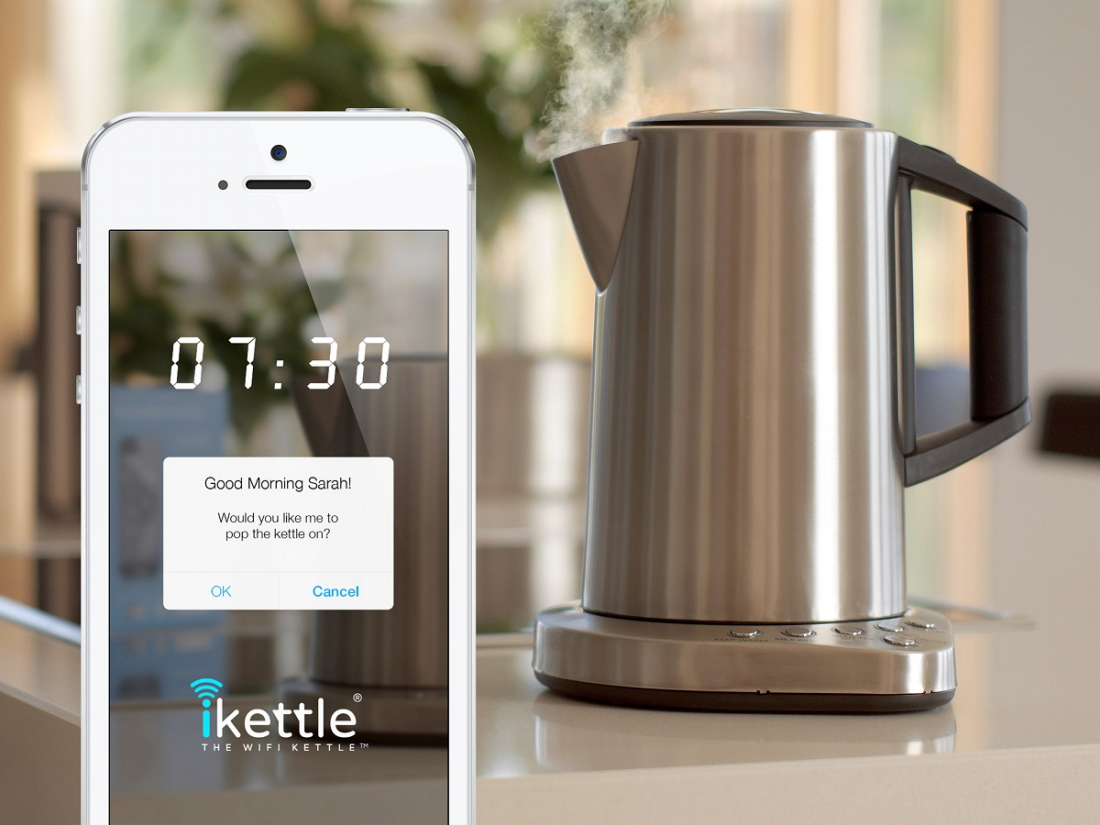There have been plenty of articles about insecure IoT devices; Internet of Things security appears to be getting worse, not better. But it's not just the dangers associated with smart homes that put some people off, it's also the fact that they can needlessly complicate simple tasks.
A perfect example of this comes from the UK, where a man spent 11 hours attempting to make a cup of tea using his connected iKettle.
Big data specialist Mark Rittman's saga started at around 9 am when his device refused to cooperate, leaving him to debug the kettle - a sentence that perfectly encapsulates many people's fear of the future. He did boil some water the old fashioned way, but carried on trying to fix the problem.
Still haven't had a first cup of tea this morning, debugging the kettle and now iWifi base-station has reset. Boiling water in saucepan now. pic.twitter.com/lC3uNX5WTp
--- Mark Rittman (@markrittman) October 11, 2016
Several hours later and Rittman still hadn't solved the issue, though he does now admit that assigning the kettle a static IP address rather than using DHCP would have been a better idea.
3 hrs later and still no tea. Mandatory recalibration caused wifi base-station reset, now port-scanning network to find where kettle is now. pic.twitter.com/TRQLuLzLpx
--- Mark Rittman (@markrittman) October 11, 2016
The problem is that the iKettle wouldn't integrate with Rittman's other smart products, such as his Amazon Echo, leading him to hack the device and add the functionality himself. But while it lacks IFTTT or Homekit integration, there is an API.
Now my wifi kettle is basically taking the p*ss. Told me it had found network, now you need to recalibrate me, oh btw I didn't rly connect pic.twitter.com/WbGsIrzBio
--- Mark Rittman (@markrittman) October 11, 2016
It is, and OK apart from flaky WiFi connectivity; main issue is that there's no IFTTT or HomeKit integration, so hacked that together myself https://t.co/0IjD7q4wzM
--- Mark Rittman (@markrittman) October 11, 2016
Eleven hours after his ordeal started, the software engineer finally got his kettle back online and responding to voice control, but his IoT problems hadn't ended: his connected lights started a firmware download, meaning he had to eat dinner in the dark.
My work is done. And now onto everything else I meant to do today, after that first cup of tea. pic.twitter.com/bJPuJ85TCT
--- Mark Rittman (@markrittman) October 11, 2016
Admittedly, this is a pretty extreme case; most people wouldn't be using a Python script to make their smart kettle work with IoT home hub devices. For his part, Rittman tweeted that the purpose of all this was "to create a real-world IoT event src for home IoT Hadoop project." But many questioned why he didn't just use a normal kettle.
